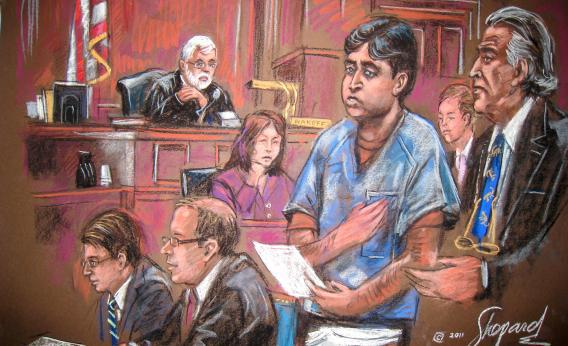Judges may not need a big stick. Delaware Chancellor Leo Strine and U.S. District Judge Jed Rakoff have become known for tough and snarky rulings, including recent ones that thumped Goldman Sachs and Citigroup. They weren’t just venting, though. When ordinary legal constraints fall short, jurists can use the bully pulpit to right some wrongs.
Strine’s recent conflicts of interest opinion has become an instant classic. It railed against Goldman and others involved in the $21 billion sale of El Paso to Kinder Morgan. Though his decision went viral on Wall Street, the judge also took some heat for not actually blocking the deal after being so critical of the conduct.
As he pointed out, though, an injunction probably would have hurt El Paso shareholders more than it helped. By calling out the dubious behavior on the transaction, however, Strine already has helped to restart a serious conversation about how bankers deal with conflicts.
Other Delaware judges have used public shaming to similar effect. In 2005, for example, Strine’s predecessor had little choice under the law but to uphold Disney’s $140 million severance payment to Michael Ovitz for his one year of service. But the judge’s opinion excoriating the company’s chairman, Michael Eisner, and the Disney board, caught the attention of compensation committees nationwide.
Few judges have mastered the art quite like Rakoff. He rejected separate settlements between the Securities and Exchange Commission and Citi and Bank of America as too soft on the banks. In BofA’s case, his lambasting resulted in a harsher deal. When Citi and the SEC fought back, a federal appeals court accused Rakoff of going too far.
Though his order may now come undone, Rakoff has still achieved plenty. His harsh criticism of Citi’s behavior and the watchdog’s controversial practice of settling cases without admissions of fault has resonated throughout banking and legal circles. He also has succeeded in part where prosecutors have failed, giving voice to the moral outrage at perceived perpetrators of the financial crisis. Jurists are proving their words can speak as loudly as actions. It’s a useful precedent being set.
Read more at Reuters Breakingviews.
